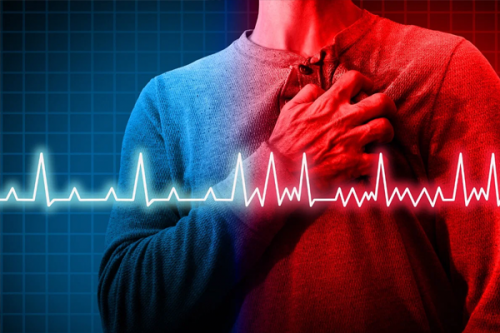
Rising Cardiac Arrests: A Call for Young India to Embrace Healthier Lifestyles
The recent spike in cardiac arrest cases raises critical questions about diagnosis and prevention. This surge in both cardiac and non-communicable diseases has alarmed corporate leaders and medical professionals alike.
When Swiggy CEO Rohit Kapoor criticized the hustle culture, advocating for a healthier lifestyle, many young people took to social media in support. However, in practice, Gen-Z and millennials often gravitate towards questionable health trends rather than adopting preventive measures.
A Growing Medical Epidemic
The rise in non-communicable diseases (NCDs) offers a possible explanation for these alarming statistics. According to the World Health Organization (WHO), NCDs—such as heart disease, stroke, cancer, diabetes, and chronic lung disease—are responsible for 74% of deaths worldwide, making them some of the most difficult lifestyle diseases to combat in the 21st century.
Among NCDs, cardiovascular diseases (CVDs) have skyrocketed, increasing from 25.7 million cases in 1990 to 64 million in 2023. Notably, India represents 15% of all diabetes cases globally, with 40-50% of heart-related conditions occurring in individuals under 55. Given these alarming figures, one would expect young people to prioritize healthy living. Yet, fast-paced lifestyles and blurred lines between personal and professional life hinder the pursuit of wellness.
Cortisol and Burnout Syndrome
The relentless drive to excel, compounded by peer pressure and unhealthy eating habits, leads to chronic stress and anxiety. Elevated cortisol levels from such stress exacerbate underlying cardiovascular conditions and NCDs. WHO data from 2018 shows that increased cortisol is linked to not only higher NCD rates but also various endocrine and neurological issues.
Prioritizing Overall Well-Being
Many young individuals mistakenly believe that their youth shields them from serious health issues like diabetes and CVDs. However, NCDs often develop silently over years, with poor lifestyle choices in one’s 20s and 30s setting the stage for future health crises. In their quest for career advancement, young professionals frequently neglect essential health practices.
While awareness of stress and the impact of sugar in diets has improved, those who recognize the dangers of junk food often struggle to make healthier choices. Many seemingly “healthy” products—like smoothies and energy bars—can contain hidden sugars that contribute to NCDs and stress.
The normalization of high stress levels poses significant risks. Chronic stress can lead to elevated cortisol, high blood pressure, and inflammation, all contributing to heart disease. Mental health is equally important but often remains a low priority for young people.
Instead of attributing these issues to societal or corporate pressures, a more pragmatic approach that considers both physiological and psychological factors is needed. Young professionals must shift from a reactive to a preventive mindset regarding their health.
Believing that youth protects against serious health conditions is not only misleading but also dangerous. Silent killers like cancer, cardiovascular disease, and diabetes do not discriminate by age; they thrive on neglect.